Remembering Yu Kwang-Chung: Twelve Essays on Translation Studies
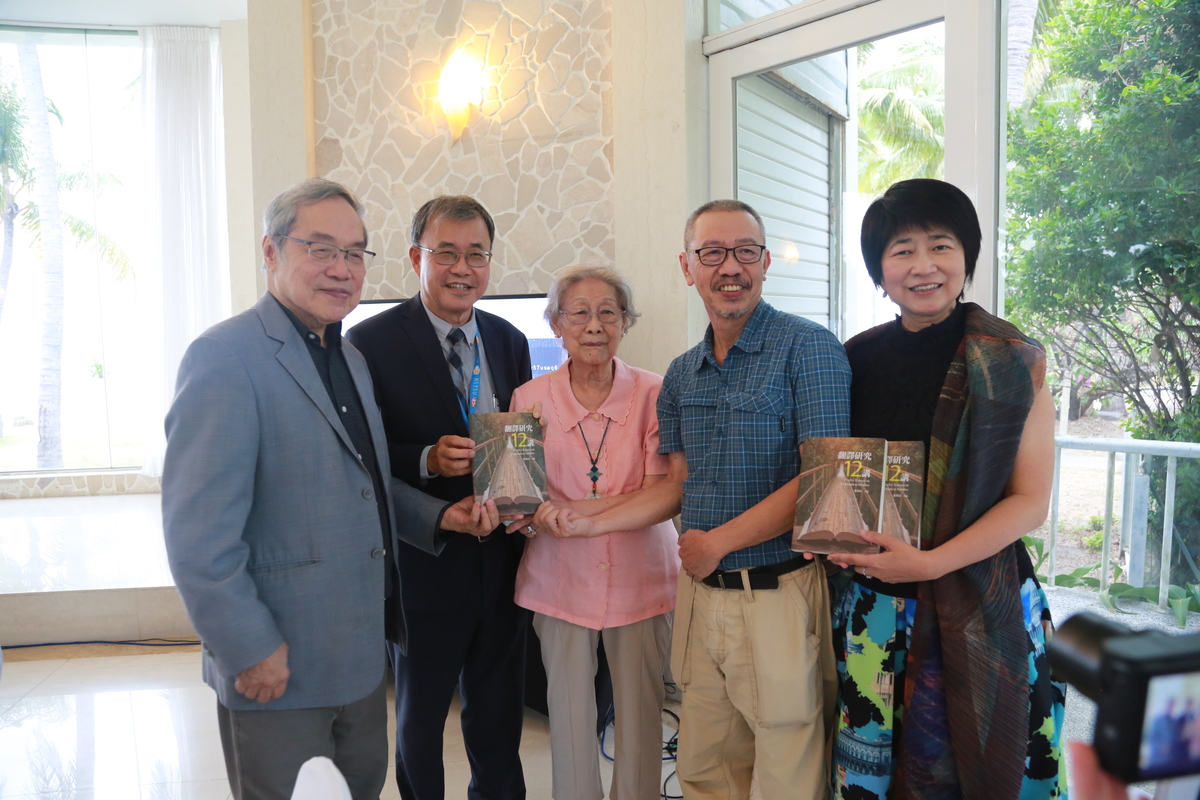
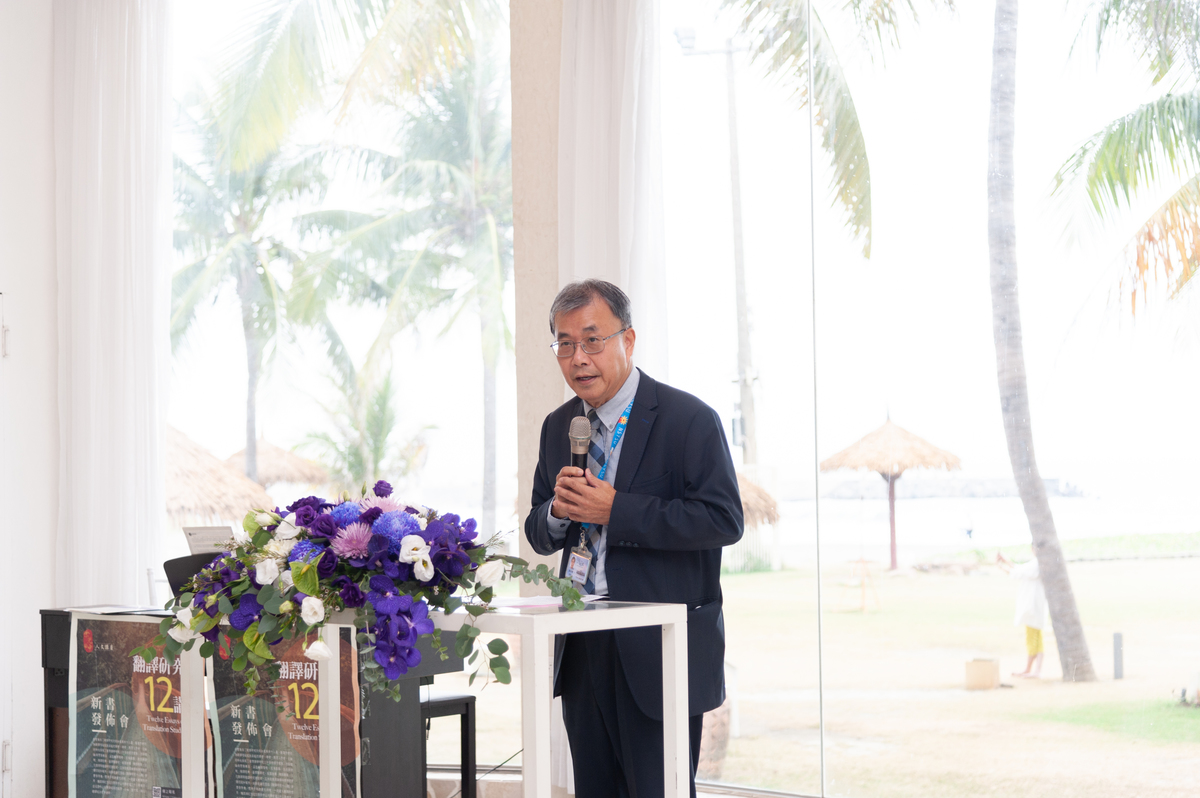
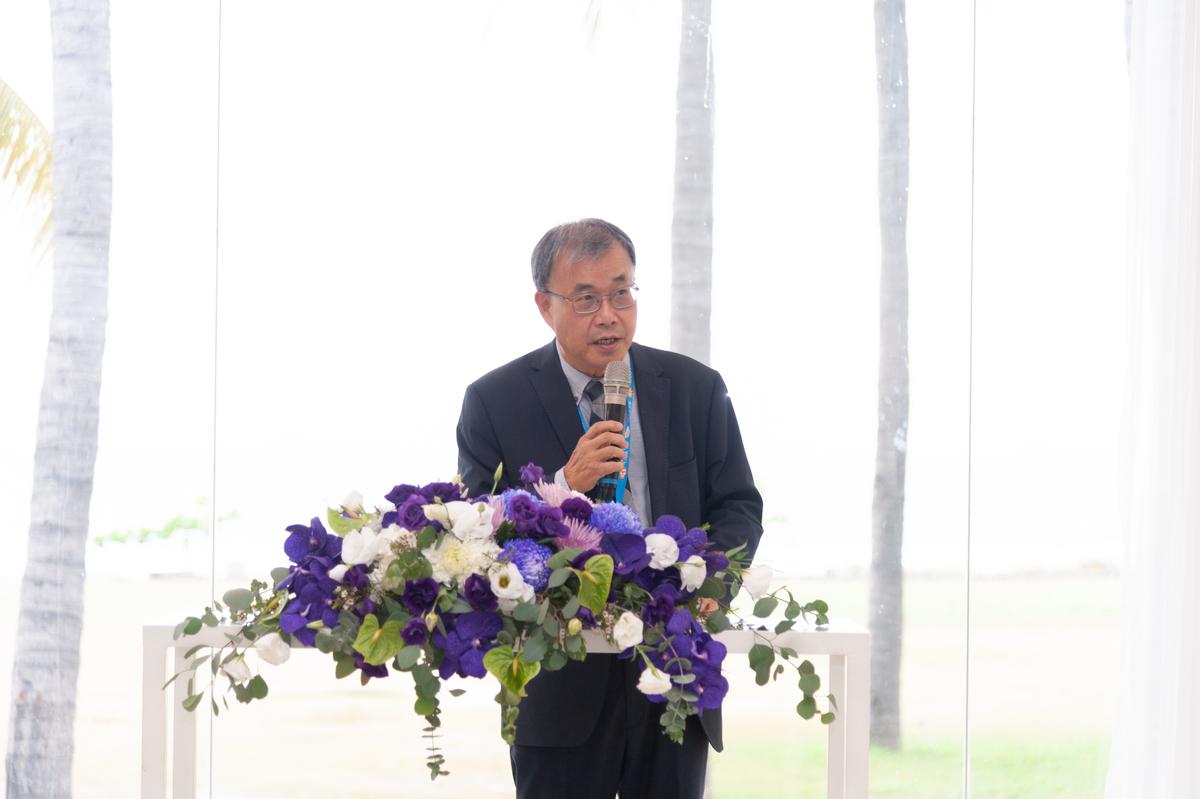
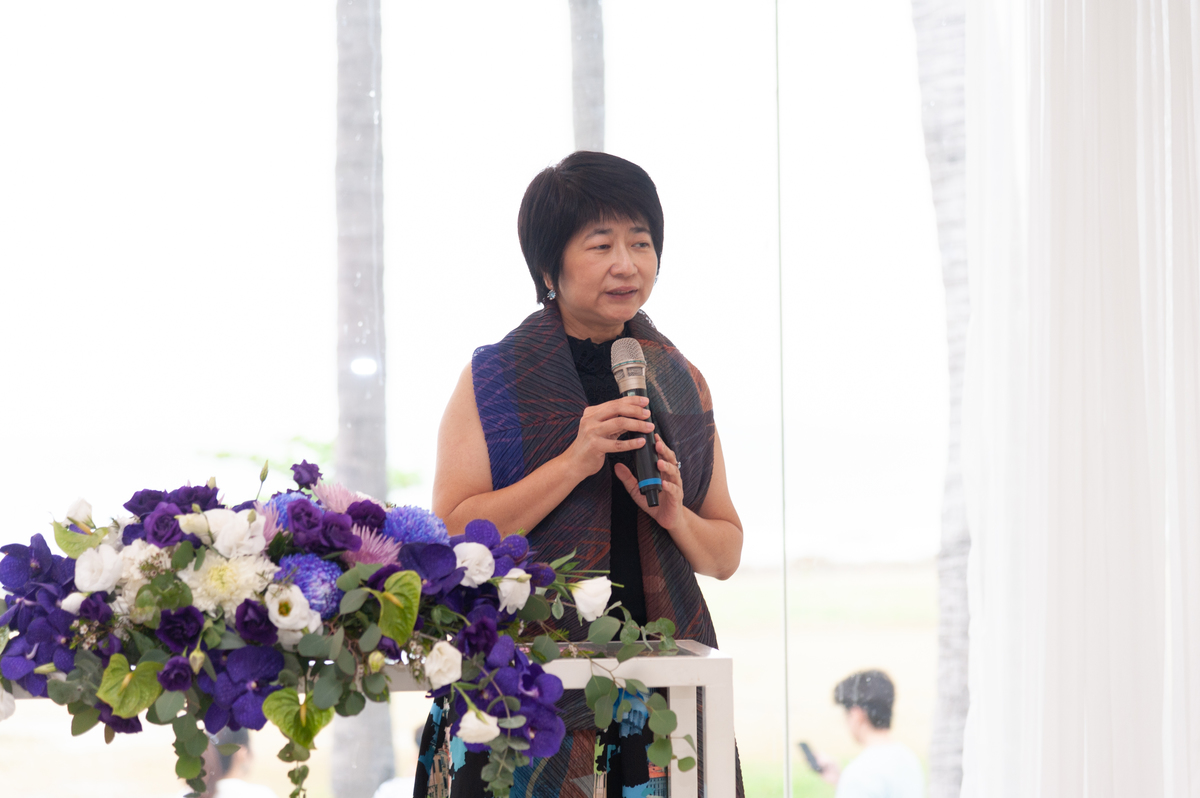
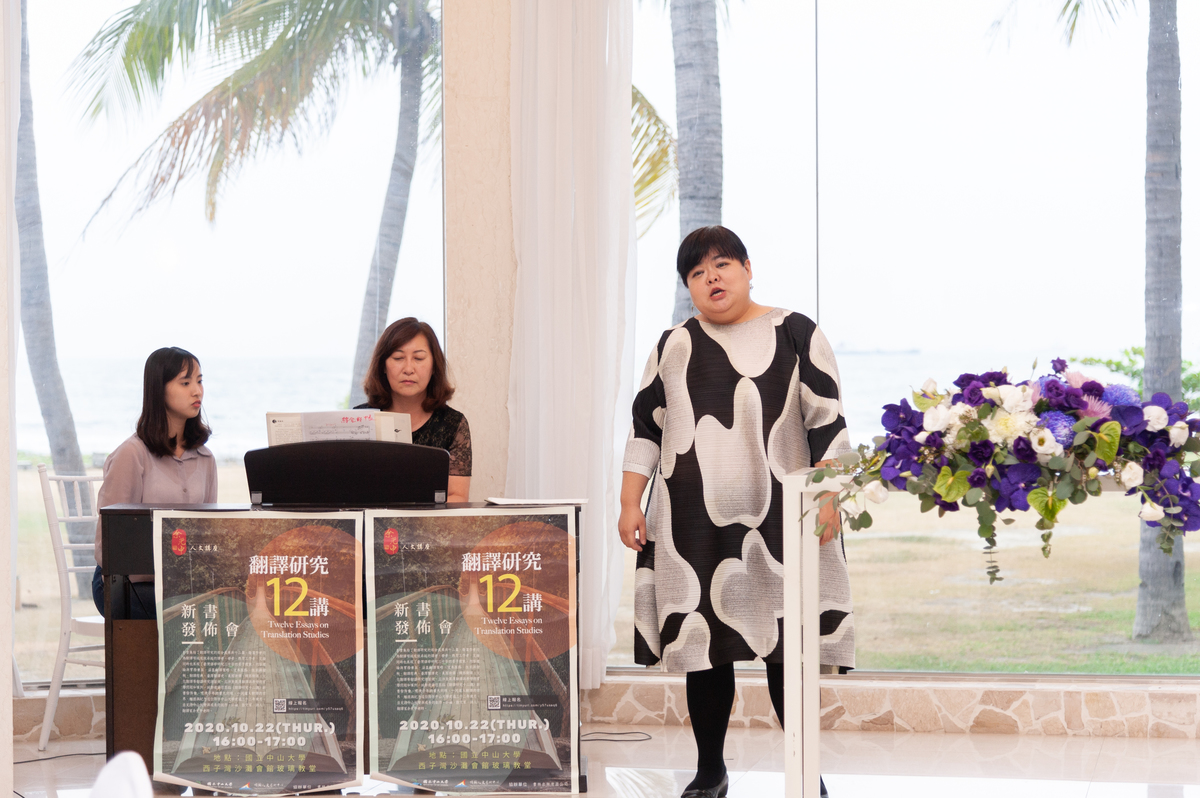
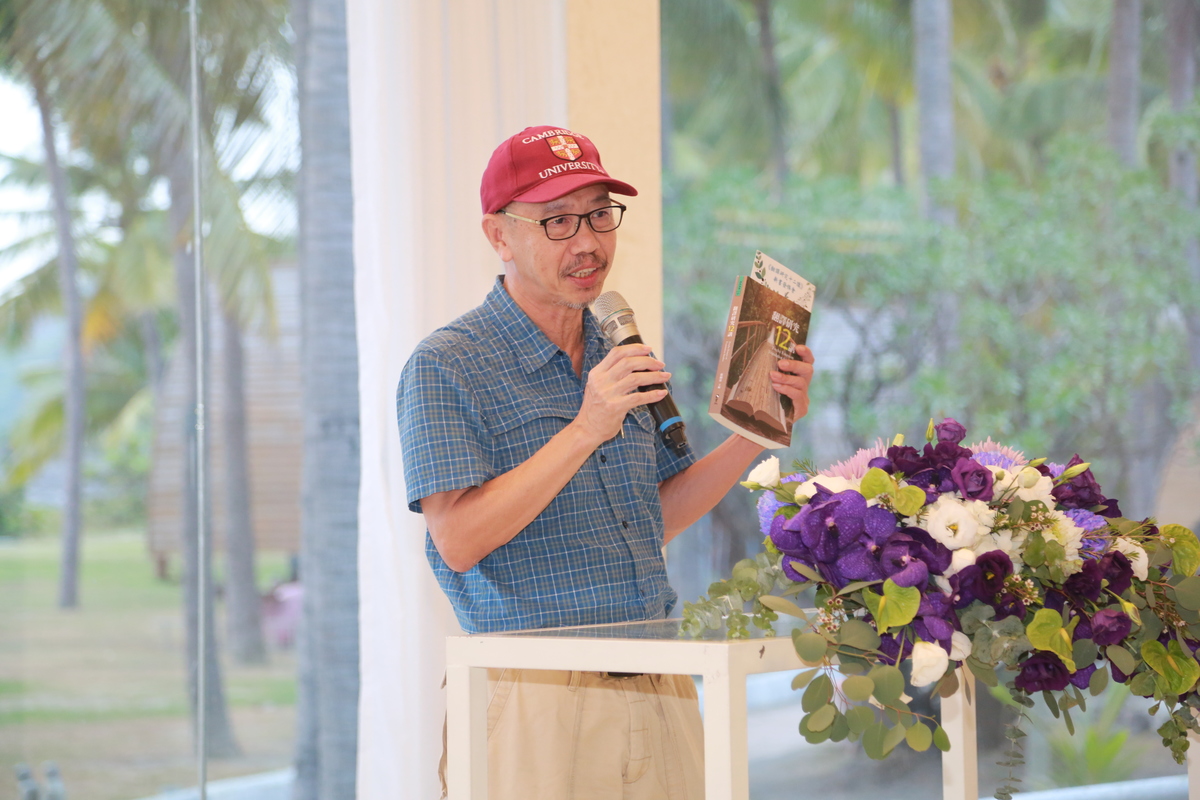
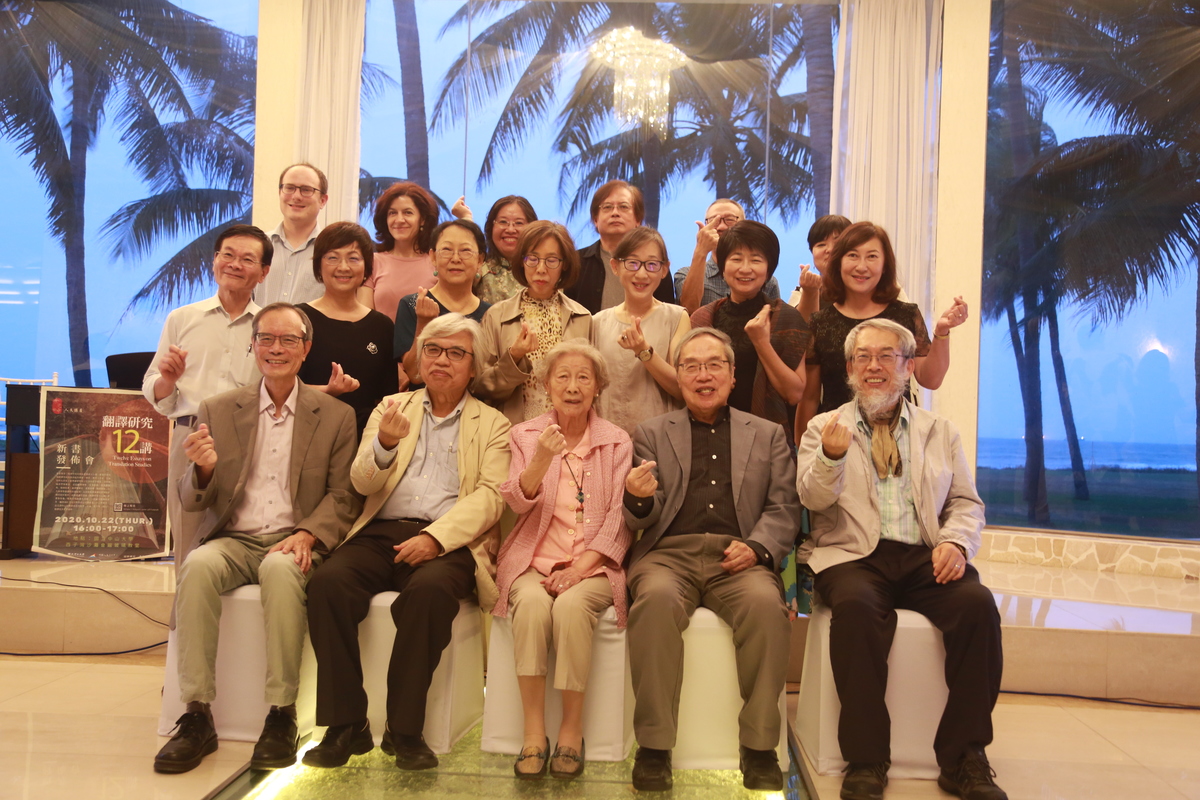
Although NSYSU Emeritus Professor Yu Kwang-Chung passed away two years ago, the memory of him at the University is still vivid. Ting Hsin Center for Arts and Humanities at NSYSU organized a book launch of Twelve Essays on Translation Studies to commemorate Professor Yu and express gratitude for his great contribution to the field of translation. The book, which collects twelve papers on translation studies by various accomplished translators, acclaimed scholars, and educators, is the fruit of a series of sixteen lectures on translation organized by the Center three years ago.
Yu’s birthday is celebrated on October 25th – this year it falls on the 9th day of the 9th month of the lunar calendar – the Double Ninth Festival. That’s why Ting Hsin Center for Arts and Humanities thoughtfully organized the event three days before this traditional festival for paying respects to the elders. In her speech, Ms. Fan Wo-Tsun, Yu’s wife, told the participants that translation had always played an important role in Yu’s career, in addition to writing poetry, essays, and critiques. She also said that the late poet was eager to translate painters’ biographies, even when he was 80 years old. Unfortunately, he did not realize this ambition due to old age.
Ying-Yao Cheng, President of National Sun Yat-sen University, said that we should promote “Yu studies” so that the poet’s literary achievements will be popularized in the world. He also mentioned that Professor Yu settled in Kaohsiung in 1985 and started to teach at NSYSU. For many years he was also the Dean of the College of Liberal Arts and Director of the Graduate Institute of Foreign Literature. During the 32 years of his teaching career at NSYSU, the late professor of English poetry and translation had contributed to the development of the university significantly and cultivated countless talents. The book launching event marked the remembrance of Yu as a true treasure of the University, in addition to commemorating his outstanding literary and academic achievements.
Professor Fang-Ming Chen, a consultative committee member of Yu Kwang-Chung Humanities Forum created by Professor Yu, shared a personal memory: Whenever he visited Professor Yu, the late poet would always insist on picking him up and was not scared of driving at all; once, when a taxi overtook his car, Yu sounded the horn and cursed the driver. “An eighty-or-so years old grandpa behaving like a young man! I never felt old spending time with Professor Yu,” Chen said with a smile.
Professor Chen also shared another story with the participants. Once a student asked him incredulously whether Professor Yu really wrote every day, his answer was an absolute one: “Yes, he writes every day, literally every day; he is either writing essays, poems, critiques or is translating.” Professor Yu was indeed an admirable and prolific writer and translator.
The editor of Twelve Essays on Translation Studies, Tee Kim Tong, Associate Professor of the Department of Foreign Languages and Literature and Head of the Center for the Humanities, was one of the organizers of the event. Together with Tee, Te-Hsing Shan, Francis K.H. So, Luisa Shu-Ying Chang, Angie Wang, and Jerome Su – five of the eleven authors who contributed to the book, shared respectively their reflections on the political situation during Yu’s age, his writing and life, as well as Yu’s techniques and concept of translation.
Professors Chia-Fen Weng and Ju-Fung Chu from the Department of Music interpreted Yu’s works instrumentally and vocally and delivered a splendid performance, arousing the audience’s memory of their past time with Professor Yu. Ting Hsin Center for Arts and Humanities also presented a video commemorating Yu’s contribution to the activities held by Yu Kwang-Chung Humanities Forum.
The essays in the collection Twelve Essays on Translation Studies were authored by accomplished scholars, translators, and educators from the local translation field, representing 30 years of translation studies in Taiwan. The book includes theory-oriented and practice-based essays, covering such aspects of translation as translation strategy, textual contextualization, gender and betrayal, translating classical works, history of translation in Taiwan, translating American poetry, machine translation, culture and translation, pedagogical cases, and problems in translating English into Chinese.
Yu’s birthday is celebrated on October 25th – this year it falls on the 9th day of the 9th month of the lunar calendar – the Double Ninth Festival. That’s why Ting Hsin Center for Arts and Humanities thoughtfully organized the event three days before this traditional festival for paying respects to the elders. In her speech, Ms. Fan Wo-Tsun, Yu’s wife, told the participants that translation had always played an important role in Yu’s career, in addition to writing poetry, essays, and critiques. She also said that the late poet was eager to translate painters’ biographies, even when he was 80 years old. Unfortunately, he did not realize this ambition due to old age.
Ying-Yao Cheng, President of National Sun Yat-sen University, said that we should promote “Yu studies” so that the poet’s literary achievements will be popularized in the world. He also mentioned that Professor Yu settled in Kaohsiung in 1985 and started to teach at NSYSU. For many years he was also the Dean of the College of Liberal Arts and Director of the Graduate Institute of Foreign Literature. During the 32 years of his teaching career at NSYSU, the late professor of English poetry and translation had contributed to the development of the university significantly and cultivated countless talents. The book launching event marked the remembrance of Yu as a true treasure of the University, in addition to commemorating his outstanding literary and academic achievements.
Professor Fang-Ming Chen, a consultative committee member of Yu Kwang-Chung Humanities Forum created by Professor Yu, shared a personal memory: Whenever he visited Professor Yu, the late poet would always insist on picking him up and was not scared of driving at all; once, when a taxi overtook his car, Yu sounded the horn and cursed the driver. “An eighty-or-so years old grandpa behaving like a young man! I never felt old spending time with Professor Yu,” Chen said with a smile.
Professor Chen also shared another story with the participants. Once a student asked him incredulously whether Professor Yu really wrote every day, his answer was an absolute one: “Yes, he writes every day, literally every day; he is either writing essays, poems, critiques or is translating.” Professor Yu was indeed an admirable and prolific writer and translator.
The editor of Twelve Essays on Translation Studies, Tee Kim Tong, Associate Professor of the Department of Foreign Languages and Literature and Head of the Center for the Humanities, was one of the organizers of the event. Together with Tee, Te-Hsing Shan, Francis K.H. So, Luisa Shu-Ying Chang, Angie Wang, and Jerome Su – five of the eleven authors who contributed to the book, shared respectively their reflections on the political situation during Yu’s age, his writing and life, as well as Yu’s techniques and concept of translation.
Professors Chia-Fen Weng and Ju-Fung Chu from the Department of Music interpreted Yu’s works instrumentally and vocally and delivered a splendid performance, arousing the audience’s memory of their past time with Professor Yu. Ting Hsin Center for Arts and Humanities also presented a video commemorating Yu’s contribution to the activities held by Yu Kwang-Chung Humanities Forum.
The essays in the collection Twelve Essays on Translation Studies were authored by accomplished scholars, translators, and educators from the local translation field, representing 30 years of translation studies in Taiwan. The book includes theory-oriented and practice-based essays, covering such aspects of translation as translation strategy, textual contextualization, gender and betrayal, translating classical works, history of translation in Taiwan, translating American poetry, machine translation, culture and translation, pedagogical cases, and problems in translating English into Chinese.
Click Num:
Share
